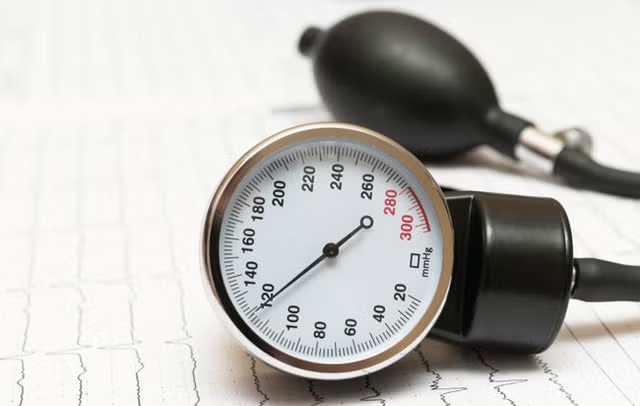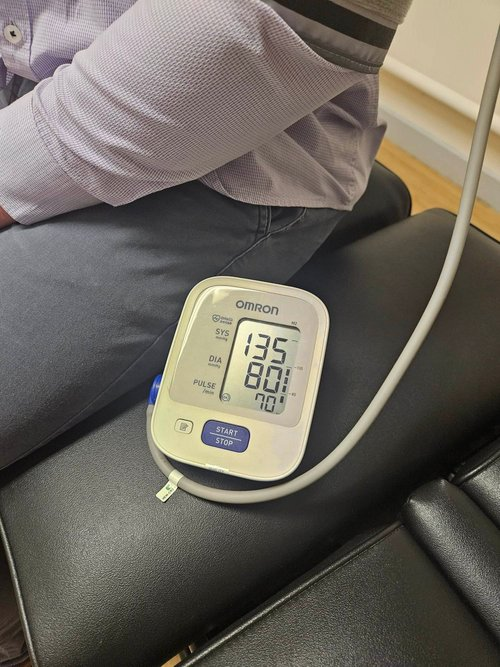For decades, the magic number for blood pressure—120/80 mm Hg—has been considered the gold standard for cardiovascular health. But as medical science evolves, so do the benchmarks we use to measure wellness. New guidelines and research have revealed that this long-held “ideal” may not fit everyone, sparking debates and reshaping the way we understand blood pressure.
What Do Blood Pressure Numbers Really Mean?

Before we dive into the updated guidelines, let’s break down what blood pressure readings signify. Each measurement consists of two numbers:
- Systolic Pressure (the top number): This measures the force of blood against artery walls when the heart beats.
- Diastolic Pressure (the bottom number): This indicates the pressure in your arteries when the heart rests between beats.
For instance, a reading of 120/80 mm Hg means your systolic pressure is 120, and your diastolic pressure is 80. Both figures are critical indicators of your heart’s workload and overall cardiovascular health.
But here’s the twist: while 120/80 has long been seen as the “perfect” reading, new research suggests that this might not apply to everyone.
Why 120/80 Isn’t a Universal Standard Anymore
Recent studies and updated guidelines from organizations like the European Society of Cardiology (ESC) suggest that the ideal blood pressure range is not one-size-fits-all. For some people, particularly older adults or those with pre-existing conditions, a slightly higher range might actually be healthier.
Here’s why:
- Age-Related Changes: As we age, our blood vessels naturally stiffen, causing blood pressure to rise slightly. A reading closer to 140/90 mm Hg might be considered normal and even necessary for maintaining proper circulation in older adults.
- Chronic Conditions: People with diabetes or other high-risk conditions now have a revised target of 130/80 mm Hg. The stricter threshold reflects their increased risk of cardiovascular issues.
These changes challenge the idea that 120/80 should be the goal for everyone, advocating instead for a more personalized approach.
The Science Behind the Shift
Why the change? It boils down to a deeper understanding of how blood pressure impacts overall health. Here are some key reasons behind the revised guidelines:
- Avoiding Overmedication: In the past, individuals with readings slightly above 120/80 were often prescribed medication. While this reduced risks for some, it led to unnecessary treatment for others who weren’t at significant risk.
- Tailored Treatment: Doctors are moving away from a cookie-cutter approach. They now consider factors like age, lifestyle, and existing health conditions before recommending interventions.
- Acknowledging Variations: Blood pressure fluctuates throughout the day based on stress, activity, and diet. A rigid definition of “normal” doesn’t account for these natural variations or individual differences.
This more nuanced understanding allows healthcare providers to prioritize personalized care over blanket rules.
What Does This Mean for You?
So, if 120/80 isn’t the only “normal” anymore, where does that leave you? It’s all about context. A reading slightly above or below this figure doesn’t automatically signal a problem. Instead, it highlights the importance of:
- Regular Monitoring: Keep an eye on your blood pressure over time to identify trends.
- Healthy Lifestyle Choices: Small changes, like eating nutritious meals and exercising regularly, can make a big difference.
- Open Communication with Your Doctor: Work with your healthcare provider to determine the best range for your unique needs.
Think of it like customizing your car’s settings. Just as every driver adjusts their seat and mirrors differently, your ideal blood pressure range should align with your personal health profile.
High Blood Pressure: The Risks You Can’t Ignore

While flexibility is key, there’s one area where the rules remain strict: hypertension. Blood pressure readings consistently above 140/90 mm Hg are considered high and warrant medical attention. Left unmanaged, hypertension can lead to serious complications like:
- Heart Attacks and Strokes: High blood pressure strains the heart, increasing the risk of these life-threatening events.
- Kidney Damage: Your kidneys rely on healthy blood flow. Prolonged hypertension can cause irreversible damage.
- Vision Loss: High pressure in the blood vessels can harm your eyes, leading to conditions like hypertensive retinopathy.
For those with high readings, treatment options range from lifestyle adjustments to medication. The key is addressing the issue early to prevent long-term damage.
Steps to Keep Your Blood Pressure in Check
Whether your blood pressure is slightly elevated or within the new normal range, proactive steps can help you maintain heart health. Here’s how:

- Eat a Heart-Healthy Diet: Focus on whole foods like fruits, vegetables, and whole grains. Limit salt and processed foods, which can raise blood pressure.
- Stay Active: Aim for at least 30 minutes of moderate exercise most days of the week. Activities like walking, swimming, or yoga are great for improving circulation.
- Manage Stress: Chronic stress can spike blood pressure. Try relaxation techniques like deep breathing, meditation, or even journaling.
- Limit Alcohol and Caffeine: These substances can raise blood pressure temporarily, so moderation is key.
- Get Regular Checkups: Regular visits to your doctor ensure that any changes in your blood pressure are caught early.
Small, consistent efforts add up to big benefits over time.
Conclusion: A New Perspective on Blood Pressure
The idea that 120/80 is the ultimate blood pressure goal is evolving, and for good reason. Modern medicine recognizes that health is not one-size-fits-all. Factors like age, lifestyle, and individual risk profiles play a significant role in determining what’s normal for you.
While 120/80 remains a helpful benchmark, it’s not the only measure of heart health. The key takeaway? Stay informed, monitor your readings, and focus on maintaining a balanced lifestyle. By doing so, you can protect your heart and live your healthiest life—regardless of what the numbers say.


